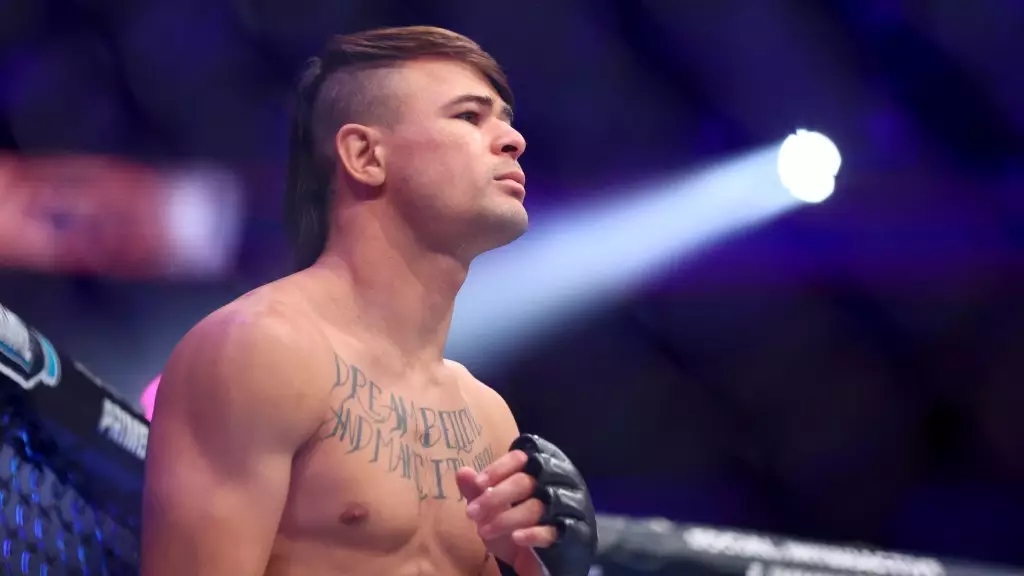In the world of mixed martial arts (MMA), opportunities often arise unexpectedly, but not all fighters are willing to take them. This was the case recently when Diego Lopes rejected a last-minute fight challenge from Movsar Evloev, who found himself without an opponent for UFC 307 after former champion Aljamain Sterling pulled out due to injury. The fight, scheduled for October 5 at the Delta Center in Salt Lake City, put Evloev in a precarious position, prompting him to reach out to Lopes on social media. However, Lopes’ response to the challenge highlighted not only his competitive spirit but also a deeper narrative of tactical decision-making within the sport.
Evloev’s invitation to Lopes was framed in a way that suggested both a chance for redemption for Lopes and an opportunity for Evloev to maintain his fight schedule. He took to X (formerly Twitter) to tempt Lopes into taking the fight, suggesting it was a chance to “defend your honor.” However, Lopes’ keen response signaled that he was not merely interested in seizing a fleeting opportunity. Instead, he reminded Evloev of their previous match, where he had already extended a hand to fight him, a chance that Evloev ultimately declined. This exchange reflects the complex psychological dynamics of competition; it’s not just about wins and losses, but also about timing, respect, and the motivations behind accepting a fight.
Lopes’ recent performances suggest that he is on a sharp upward trajectory, particularly following his recent victory against former title challenger Brian Ortega at UFC 306, where he showcased superior skills to earn a dominating unanimous decision. This achievement not only extended his current winning streak to five fights but also positioned him favorably within the UFC landscape. Given this context, Lopes is likely weighing the risks of taking a last-minute fight against a fighter like Evloev, who remains undefeated and is climbing the ranks in the featherweight division. A loss to Evloev could derail Lopes’ momentum, whereas a victory would not carry the same weight given the circumstances.
The Broader Implications for MMA Fighters
Lopes’ refusal illustrates a crucial point about strategy and decision-making in the sport of MMA. Fighters must navigate their careers with a careful balance between seizing opportunities and preserving their records. While short-notice fights can sometimes lead to career-defining moments, they can just as easily jeopardize a fighter’s standing within their division. Lopes’ choice also underscores the importance of timing in MMA; waiting for the right moment to capitalize on opportunities is just as vital as capitalizing on them.
In a sport defined by unpredictability, both fighters’ decisions reveal the intricate layers of strategy, ego, and career management that come into play. As the world of MMA evolves, observations such as these remain crucial for understanding how fighters approach their careers on both a personal and professional level. Ultimately, Lopes’ decline of Evloev’s challenge serves as a reminder that in combat sports, the soldiers in the ring are always weighing the risks, strategizing their next moves, and deciding which battles to fight.

